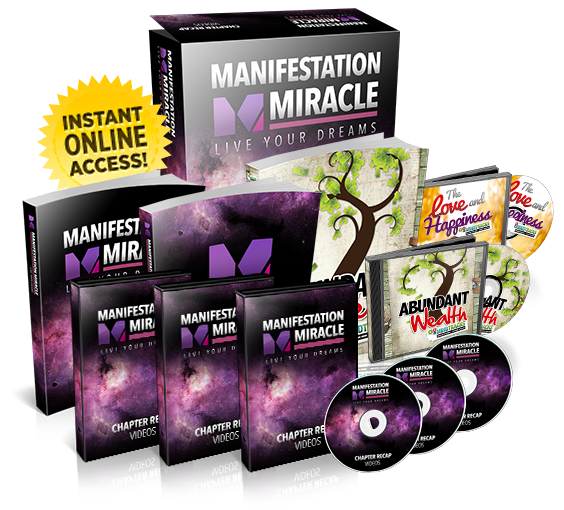Goal Setting to Be Happy!
(Part Three):
Please contribute to the happiness of others by providing your own personal tips on setting or achieving goals by filling in the invitation at the bottom of this page... |
Achieving Your Goals
In Part One of this BeHappy! goal-setting series, you learned how creating your Definition of Happiness helps to lay the mental foundation for designing some meaningful goals. You also considered your life's purpose and your passions as part of the process.
In Part Two, our objective was to design those goals; both for the short-term and long-term. We went through a fairly detailed process designed to identify your life's main goals, complete with a prioritization of those goals, and a time frame by which to achieve them.
Now, here in Part Three of the BeHappy! goal-setting series, everything will come together to actually help you achieve the goals you created from the first two parts.
As always with these action-oriented, BeHappy! series of articles, it’s important for you to do the entire process. So if you haven’t gone through Part One or Part Two - do it now! Take the time to really get the most of this important component of your life.
Once you’ve done what Parts One and Two help achieve, it’s time to...
Visualize and Focus
With your written out goals from Part Two, the first step toward actually reaching your goals is a mental one. And, as with many other success-oriented processes, this one must become a habit - a daily, weekly, monthly, and yearly habit. That is, the first thing you must do every morning when you wake up is visualize your goals and desires. You must make them real in your mind. Ideally, your life – with your goals achieved – needs to be so real in your mind that you almost believe you are already living it. It has to be conscious and specific. You must focus your mind on what you want to achieve in your life. And the more difficult – or even unrealistic your goals are - the more critical this first step is. It’s best to do it by sitting in a comfortable position, with full focus and attention on your goals. But I know some of us – myself included – don’t feel that we have “time” to spend even 5 minutes everyday doing it. I jump out of bed at 4:00 every morning and am “off to the races”. If you’re that way, then at the very least, focus on it while you’re in the shower (which should be at least 5 – 10 minutes). Really focus. Visualize yourself having achieved your goals. Picture yourself enjoying the feeling the achievement of your specific goals provides. See your life – and your lifestyle – with your goals having been met.
Five minutes. That’s all it takes. But it’s essential. Making this step a habit will make your chances of achieving your goals – even the most difficult ones – very high.
And don’t be deterred by some of the negative thoughts you might have – or the “realism” your mind wants to throw your way. Almost everyone experiences it. Especially with the big goals – like getting a 100-foot yacht, or making a million dollars a year, or qualifying for the next Olympics, or changing careers to “make a living” doing something you love. Your “realistic” mind will kick in occasionally and tell you it’s too tough – or that you don’t have what it takes. You might even start focusing on past failures as “evidence” of your inability to achieve your goals. Don’t worry about these thoughts. Just acknowledge that it’s your mind’s limiting beliefs at work and just let it happen. The more you visualize and focus, the more these mental saboteurs will diminish.
To make this visualization and focusing process even stronger, it's important to create an intense desire to achieve your goals. So create and intensify that desire by understanding why you MUST achieve your goals. What benefits and feelings will it provide you? How will achieving your goals help you raise happier, more balanced children or contribute to those in need? How will reaching your goals change your lifestyle? Will you create a sense of peace-of-mind by the achievement of your goals?
Also, set your life up so you have constant reminders of your goals. Put pictures up in your home or office relating to those goals. Make your goals part of your computer’s screensaver. Put pictures in your PDA or cell phone and look at them throughout the day.
These reminders will help maintain your focus, increase your desire – and help propel you into a whole new level of achievement.
And I realize that this stuff isn’t always easy. If it were, everyone would be living their dreams. Daily focus and intense desire are critical. So make sure you have that desire before you go any further in this process. And if the desire is not there, go back to Part One of this series and create a big enough reason for you to achieve these goals.
Designing a Plan...
As you are developing the daily habit and intensifying your desire - like most everything else in life - you need a plan (or map) to get to where you want to go. This isn't easy either. Making plans takes thought, time, effort, and - to a certain degree - vision. That's why I want to make it a bit simpler - and more immediately action-oriented - by using the "quick and dirty" goal planner below. At the very least, it's a start to the process. And for some people, this may be all that's needed. For others, a more detailed, comprehensive plan may be necessary. It's up to you. Take it as far as you want. This is your plan.
For our purposes here, though, I'm only going to get you started by having you fill out the blanks below to create an action plan for each of the goals you wrote down in Part Two of this series.
| INSTRUCTIONS FOR COMPLETING THIS BASIC GOAL-ACHIEVING PLAN: First: reproduce the "template" below however you'd like (e.g., print it out, copy it into a e-document like "Word" or "Excel", etc.) Next: fill in the blanks for each of the goals you created in Part Two of this goal-setting series (I've provided enough for 10 goals - you may have less, so obviously just use the ones you need - or add more if you happen to have more than 10 major goals) Then, for the numbers under each of your goals, write in a one-sentence "objective" or "sub-goal" that will lead you to your ultimate "overall" goal For example: if one of your 5-year goals is to have a bestselling book published, here's how it might look:
|
OK, your turn. Fill out your "plan" here (use the goals you wrote out in Part Two of this series):
- Goal #1:
- Goal #2:
- Goal #3:
- Goal #4:
- Goal #5:
- Goal #6:
- Goal #7:
- Goal #8:
- Goal #9:
- Goal #10:
Now, once you have built this basic "bullet point" plan, it's time to take...
Daily Action...
Next, as part of the achievement process, you need to take daily action – another habit which needs to be formed. And I really mean everyday. Even something small qualifies. It just needs to be some type of action; something that takes you a bit closer to your goal. If one of your goals, for example, is to change careers, an action you could take today is to call a few job recruiters to investigate the demand for the career you want. Or you might just look online for some information on your desired career.
If one of your goals is to write and publish a book, then write something everyday – even if it’s just a few thoughts. What matters is that you take some tangible action everyday. And what’s really amazing about this process is that, once you are in the habit of focusing on what you want and taking some small daily action toward achieving your goals, more opportunities begin to just “show up” in your life.
I don’t know how it really works – but the
Law of Attraction certainly comes into play. So even if you can’t think of actions to take everyday right now, don’t fret, because they will come. Sometimes you’ll even be faced with too many opportunities and ways to act. Just go with it. It’s all part of the process.
Monitoring Your Progress...
Once you have made a habit of focusing on your goals and taking some action everyday, you will start to make progress toward achieving your goals. It’s almost certain. It may be very slow at first. In fact, it usually is. And sometimes, the progress is not really even noticeable. But it’s happening. Trust me. If it’s not, you’re just not focusing enough or taking some action everyday. Because if you are, you will make progress. And when you do, notice it – and celebrate it. Be grateful for the progress you’ve made. Give yourself some kind of reward for what you’ve accomplished – no matter how small or insignificant it may seem.
Because, once again, if the desire is strong enough; you’ve aligned your goals with your Definition of Happiness; you’ve written down those goals; taken the time to focus on these goals everyday; created a plan to reach them; and taken some action toward achieving those goals – you will achieve them. And you will start to notice some progress along the way. If you are not making progress, then it’s simply that one or more of the pieces to this process is not being addressed – or is not strong enough. It may be that you haven't developed the daily focus habit, or you didn't create the plan as required. Do whatever is missing - all steps are essential. Including...
Dealing with Obstacles...
There is seldom a straight path to success. Most times, there are obstacles to overcome and setbacks to address along the way. This should not be surprising – and it should especially not be discouraging – since it should be expected. Again, this is where the desire and the daily habits come in. They help us manage around, or through, the obstacles and keep us motivated during the setbacks.
And you can never give up!
| "Many of life's failures are people who did not realize how close they were to success when they gave up." - Thomas A. Edison |
Failure will not be possible if you follow this process and persist - no matter what. That means getting through the obstacles and setbacks. Remember, these will almost surely occur. So expect and manage them – and you will ultimately achieve your goals.
Goals can be a means to health, wealth, and happiness. If your personal Definition of Happiness contains some important life achievements (like financial abundance or life-long fitness), then it is essential for you to set goals and go through a process like the one described here in this 3-part BeHappy! goal-setting series.
Even if your Definition of Happiness does not contain some major achievements like these, goals can be a great way to contribute to others and maintain strong relationships. Importantly, too, regardless of your long-term desires or needs, goals help create positive expectations for the future – a key component of happiness.
So, to really BeHappy!...
Achieving your goals is a great thing (we wouldn't have gone through all this if it weren't). Many people, however, achieve some awesome goals, but don't enjoy the process - or even the RESULT!!! Yes, it's true. Some people might reach their goal of getting that book published, buying that 100-foot yacht, building their dream house, and/or contributing a million dollars to help fight cancer - then just take everything for granted or wonder if that's all there is now to life. They don't feel the intense appreciation and joy which should be associated to their accomplishment.
PLEASE DON'T LET THIS HAPPEN TO YOU!!!
Remember, this website is about being as happy as possible (not really about achieving goals). This whole goal-setting thing is here only as a means to help you BeHappy! ... so the achievement of your goals must make you happier for my mission to be fulfilled. Part of enjoying the process is why we "celebrate" as we go along. Then, once a goal is achieved, there are two more things required to BeHappy!:
- Reflect on your accomplishments regularly (like every month or so): For example, every time you're out on your boat - or you see the book you wrote on the shelf - or you hear the word cancer (and you've donated a million dollars to fight it) - remember what it took to achieve that goal. Reflect on the sacrifices you made and the effort you put in. Recall the process you went through. Remember the feeling you had before you achieved the goal. Feel the sensation of how badly you wanted what you got - and WHY!! Be proud of yourself. Focus on how the achievement of this goal has enhanced your life. Notice how it makes you feel.
- Replace the achieved goal with a new one: This doesn't mean that - now that you have that 100-foot yacht - you replace it with a goal to get a 200-foot yacht. That contributes to the "negative" perspective that you'll never be happy (or content) with what you have and you'll always want more. Rather, this means replacing it preferably with a contribution goal. For example, if you got that 100-foot yacht, maybe the new (replacement) goal could be to take out a group of orphan children out on a "party" cruise at least once every few months. Or if you achieved your goal of getting your book published, make the "replacement" goal contributing a portion of the proceeds from the sale of your book to a certain charity or cause.
Here’s a Summary of the BeHappy! Goal-Setting Process (all 3 parts):
|
So use these ideas (all of them from Parts One, Two, and Three of this series) for setting and achieving goals. And...
BeHappy! my friends
Click here to return to the BeHappy101.com homepage
PLEASE CONSIDER... If the information on this site helps you and you'd like to make a donation to BeHappy101.com (to help make others happy), please click on the "Donate" button below to make a contribution. The amount you donate is entirely up to you and is greatly appreciated!! |


Have A Great Tip on Setting or Achieving Goals?
Do you have a great method to set goals or an effective way to achieve them? Share it!








 I'm Jimmy, the founder and creator of this site and the whole BeHappy! system. My life's purpose is to be a positive, creative force for health and happiness and through this website, my books, coaching, and happiness-building programs, I intend to help as many people as possible live their happiest possible lives.
I'm Jimmy, the founder and creator of this site and the whole BeHappy! system. My life's purpose is to be a positive, creative force for health and happiness and through this website, my books, coaching, and happiness-building programs, I intend to help as many people as possible live their happiest possible lives.